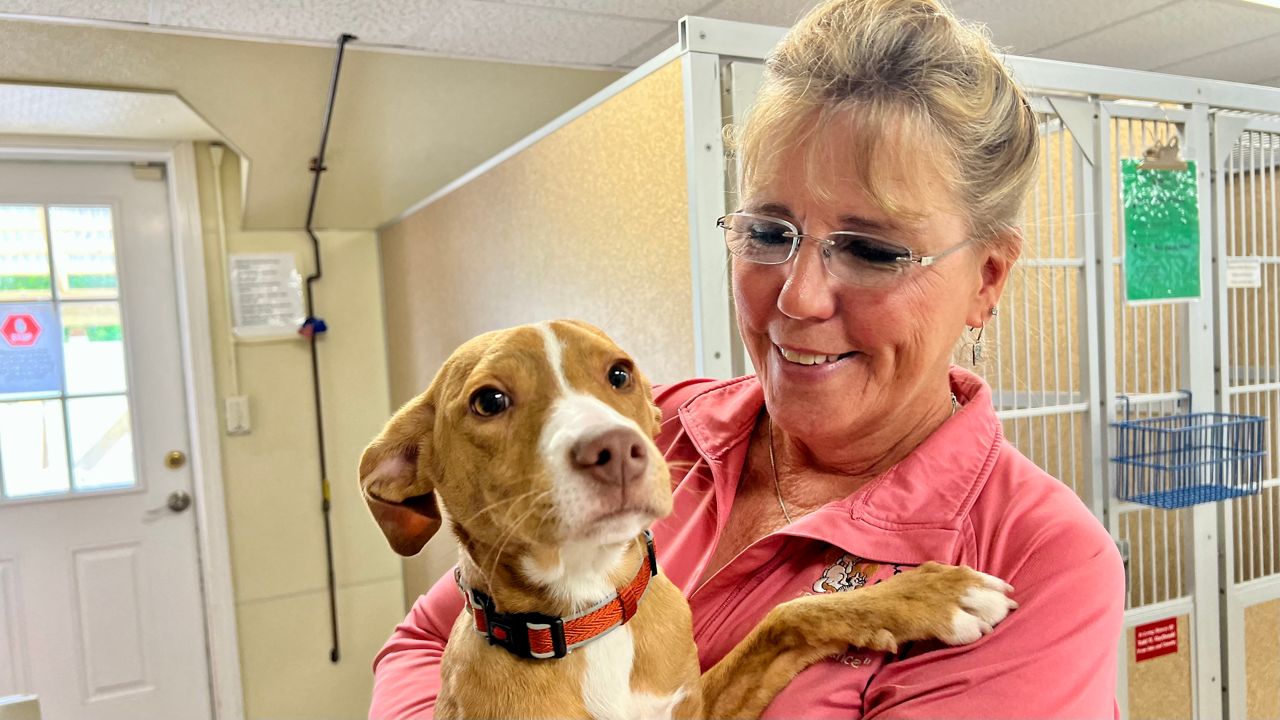EAST BROOKFIELD, Mass. - An animal services group is piloting a program to care for the pets of domestic violence victims, who often feel pressure to choose between their own safety and the safety of their pets, advocates say.
Project Keep Me, launched by Second Chance Animal Services in East Brookfield, gives temporary shelter to the pets of survivors who can demonstrate that they are working with a domestic violence group.
The care allows survivors time to find a more permanent and safe housing arrangement without having to worry about leaving their animals in an abusive environment.
“We are very big on surrender prevention whenever we can,” said Sheryl Blancato, CEO of Second Chance Animal Services. “Project Keep Me is for those that have an animal that they don’t want to leave behind.”
When survivors cannot take their pets to domestic violence emergency shelters or don’t receive help with finding temporary care for their pet, they may delay leaving their abuser or have the animal stay behind, experts said. As many as 65% of domestic violence victims are unable to leave abusive situations because they’re concerned about what will happen to their pets, according to the National Domestic Violence Hotline.
Second Chance offers a maximum of 90 days of care at no cost, including shelter, food and medical care if needed.
“We take care of everything and if there’s some medical need, basic need, we can help with that as well for them,” Blancato said. “Certainly, if something comes up, we can take care of that because we want the people to take care of themselves and to get where they need to be as quickly as possible.”
Blancato said that two organizations provided initial grant funding for the project. Second Chance is also seeking individual donors who are interested in the program’s mission and keep it running long term, Blancato said.
Blancato and Wendy Hall, animal relocation director at Second Chance Adoption Center, said that the program is strict with handling personal information. Each owner and pet are assigned a case number instead of using their names in order to hide their information. In addition, only the owner and the emergency contact, whom the owner designates on the contract, can pick up the animal.
“We did kind of a soft roll out of this and we have had a few people use it and they had the animal here for maybe 30 days while they got themselves situated and came back,” Blancato said. “They were very, very grateful to be able to have that resource just to get themselves settled in.”
Although not all domestic violence shelters can house survivors’ pets, many aid survivors in finding safe, temporary care for their pet. The YWCA of Central Massachusetts’ free emergency shelter for domestic violence survivors doesn’t accommodate pets, except for service animals, but they do help survivors find temporary care for pets.
The YWCA will also reach out to pet foster services and shelters or see if they can supply the finances needed for a family member to support a survivor’s pet. These finances can include paying for pet food, medical bills or pet fostering costs while a survivor is in the shelter.
“We do have special funding for survivors also and we can tie into how paying a medical bill or how providing three months' worth of dog food to a family member is going to help a participant in the long run, because now the participant won't be worried about the pet,” said Wendy Connor, domestic violence shelter manager for the YWCA.
Blancato said Second Chance is hoping to partner with local domestic violence shelters to make the process of finding care for survivors’ pets easier.
“We want to make sure that if we are helping with the pet, that the person is also getting the services they need as well,” Blancato said.



